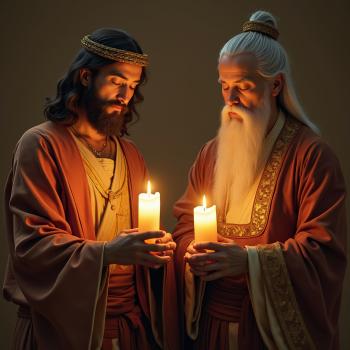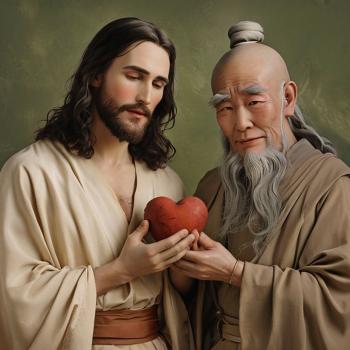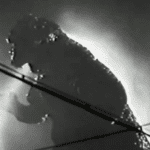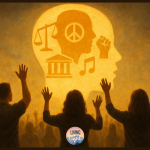Religions spend a lot of time contemplating the afterlife. But Taoism seems more interested in the foundation of things than the end of them.
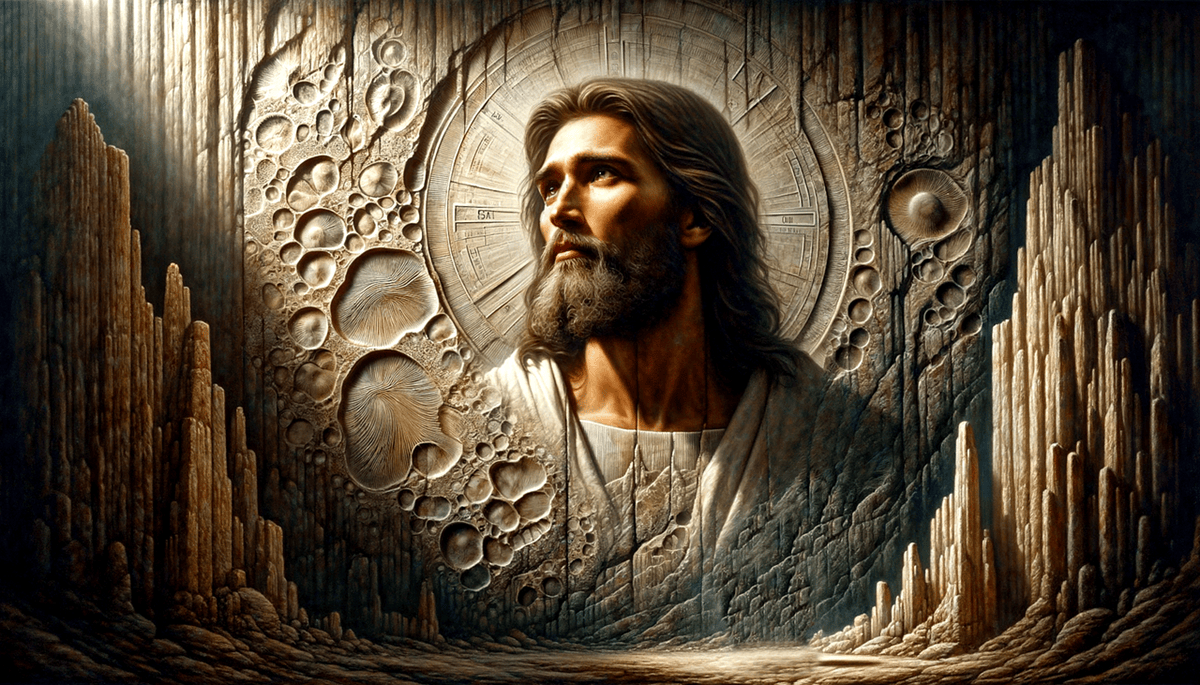
The Bible offers multiple creation stories about how the world came into being. The Tao Te Ching, however, offers no clear cosmology that could be interpreted as a creation story. It reflects on the origin of all things, from a philosophical standpoint. Here’s what verse twenty-five has to say:
Lao Tzu’s Tao Te Ching, Verse 25
J.H. McDonald Version
Before the universe was born
there was something in the chaos of the heavens.
It stands alone and empty,
solitary and unchanging.
It is ever present and secure.
It may be regarded as the Mother of the universe.
Because I do not know its name,
I call it the Tao.
If forced to give it a name,
I would call it ‘Great’.
Because it is Great means it is everywhere.
Being everywhere means it is eternal.
Being eternal means everything returns to it.
Tao is great.
Heaven is great.
Earth is great.
Humanity is great.
Within the universe, these are the four great things.
Humanity follows the earth.
Earth follows Heaven.
Heaven follows the Tao.
The Tao follows only itself.
The Afterlife
Throughout Christian history, believers have expended great energy trying to understand the nature of heaven and hell. Christians preoccupy themselves with the afterlife far more than their Jewish siblings. The Hebrew concept of the afterlife is a bit more ambiguous and often reminiscent of Taoism. While we don’t find a lot about the afterlife in Taoism, we can discover hints in passages like the one above.
Without Beginning or Ending
Lao Tzu says that the Tao existed without beginning or ending, before the foundation of the universe. There is nothing else like it. The Tao has no rival. It cannot be turned, altered, lengthened, or shortened. It cannot be enhanced. In Lao Tzu’s description, the Tao is omnipresent and omnipotent. The Tao would be omniscient, had Taoists understood it as a personal deity capable of knowledge. Of course, Taoists do not see the Tao in this way. It is omniscient, however, if we understand the Tao as Knowledge itself, and the Source of all wisdom. The Tao does not know; rather, it is Intelligence itself. In this way, it can be said to be the essence of Omniscience. Being omnipresent, omnipotent, and omniscient, the Tao is not a personal deity, yet still it is divine.
The Tao is Eternal
The Tao is eternal. Being eternal means everything returns to it. If Taoists were Christians, they would be universalists. For Christians who are Taoists, universalism seems the most natural thing. The psalmist expresses a similar notion when he writes:
Where can I go from your spirit?
Or where can I flee from your presence?
If I ascend to heaven, you are there;
if I make my bed in Sheol, you are there.
If I take the wings of the morning
and settle at the farthest limits of the sea,
even there your hand shall lead me,
and your right hand shall hold me fast.
If I say, “Surely the darkness shall cover me,
and night wraps itself around me,”
even the darkness is not dark to you;
the night is as bright as the day,
for darkness is as light to you. (Psalm 139:7-12)
Since there is no place we can go where we are apart from God, it stands that just as God is in heaven (if such a place were actually a place) then God is also in hell (if hell were an actual location). If we understand heaven and hell as states of being rather than positions charted by longitude and latitude, this makes even more sense. Time means nothing. Space means nothing. What matters is the eternal All in All.
We All Return to God
We cannot escape the Tao—neither should we want to. That would make as much sense as a fish wanting to escape the water. While Taoism shows little interest in an afterlife, Christians who long to understand such things can take comfort in knowing that, according to our own Scriptures, there is no place we can go where God is absent. This causes us to rethink our ideas of heaven and hell. In the end, we all return to God. If we find that loving presence desirable, this is heaven indeed. However, the more we resist the embrace of grace, the more returning to the Tao will feel like hell. It’s a matter of your inclination, what it will feel like to return to God.
Dust and Ashes
Lao Tzu says, “Humanity follows the Earth. Earth follows heaven. Heaven follows the Tao. The Tao follows only itself.” The Hebrew scriptures say something similar: “All go to one place, all are from the dust, and all turn to dust again. Who knows whether the human spirit goes upward and the spirit of animals goes downward to the earth?” What does this mean?
When our lives end and our bodies return to the earth, we find our breath or our soul returning to God as well. As ash mixes into soil to form the nutrients for new growth, so our soul and our spirit merges into God, who is always creating. Whatever lies beyond this life tends to be of far more interest to Christians than it does to Taoists. But for those with an inclination to blend the two, we can rest in the assurance that it is going to be good.
Ponder…
Settle into a comfortable seated position, with your hands in your lap and your eyes closed. Slowly breathe in through your nose and out through your mouth. Become aware that each inhalation of oxygen is the exhalation of all the grass, plants, and trees around you. Sense the gratitude of those chlorophyl-powered sisters and brothers as they breathe the carbon dioxide you exhale.
Realize the unity of all things that share a common breath. All of creation inhales and exhales together. As you breathe, consider that when you die, that breath will not be lost. It will nourish plants and trees and grass. These will, in turn, whisper their blessing upon all oxygen-breathers. You are part of the universal life cycle. Nothing is lost, and nothing is gained, through birth and death. There is only one Life.
Whatever your view of the afterlife, allow this experience of earth’s breath-cycle to inform your understanding of the meaning of “eternal life.” You are part of the never-ending cycle. Nothing can separate you from this one Breath, this one Life.
For related reading, check out my other articles:
- Renaming God: The Way, The Tao, & New Perspectives
- Is God Really Knowable? Here’s What Jesus and Lao Tzu Say…
- How You Can Embrace the Mysterious Virtue of Jesus & Lao Tzu






